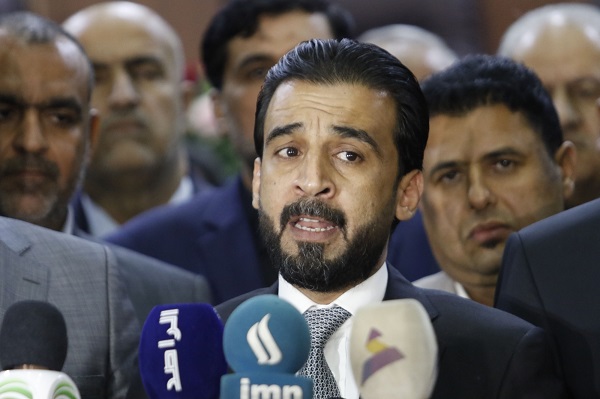Baghdad, (Asian independent) The Iraqi parliament speaker has approved the resignation of all lawmakers of the Sadrist Movement, the biggest winner in the October 10 elections, shows a video aired by state-owned al-Iraqiya channel.
The resignation came just after the Sadrist Movement’s leader Moqtada al-Sadr, also a prominent Shiite cleric in Iraq, asked his bloc’s members to resign from parliament to save the political process from an unknown fate, according to a written statement affixed with his seal and signature.
The Sadrist Movement was part of the tripartite ‘Saving the Homeland’ alliance, which also includes the Kurdistan Democratic Party (KDP), led by Masoud Barzani, and the Sunni Sovereignty Alliance, co-led by Parliament Speaker Mohammed al-Halbousi.
The resignation is “a sacrifice from me for the sake of the homeland and the people to rid them of an unknown fate,” al-Sadr said in his statement, noting KDP and Sovereignty Alliance are no longer allied with him, Xinhua news agency reported.
On Thursday, the Sadrist Movement leader threatened that his bloc would be in the parliamentary opposition or completely withdraw from the political process unless a national majority government was formed, while directing members of his bloc to prepare their resignations.
During the past months, the continuing disputes among the Shiite parties have hampered the formation of a new Iraqi government, as the parliament has been unable to elect a new President by a two-thirds majority of the 329-seat parliament under the constitution.
If elected, the President, whose tenure is limited to two four-year terms, will then appoint the head of the government, or the Prime Minister.
Al-Sadr had vowed to form a new national majority government from the winning parties in the elections after his followers took the lead with 73 seats in the elections.
Al-Sadr’s pro-Iran rivals and some other parties, however, want to form a consensus government to include all political blocs, as in the case of all successive governments since 2003.








